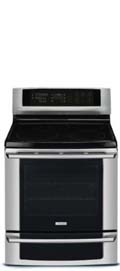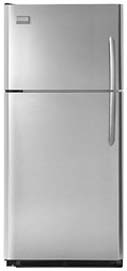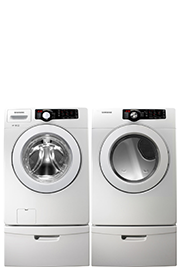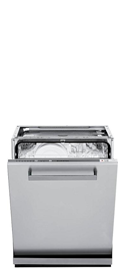APPLIANCE TIPS
Home appliances aren't made like they used to be and many consumers neglect to perform scheduled mainenance on their machines or overlook basic use and care tips when operating their appliances. This can mean your appliances are bearing a greater load than they need to be and this can mean more problems down the road and a decreased life expectancy for your appliance.
Below we've compiled a brief overview of best practices for appliance usage. Are some of these new to you? Whenever possible, put these tips into use to get the most value out of your appliances.
Refrigerator tips:
- Keep your refrigerator on a level surface. This ensures that no undue pressure is being put on the door seals and they will last longer this way.
- Allow 4 inches of space on all sides of the refrigerator to maximize heat dissipation from the unit.
- Don't forget to replace your fridge water filter at least once every 12 months. Water filters that are past their expiration date can do more harm to your water than good.
- Clean your condenser coils on occasion so that your compressor isn't strained.
- Keep your freezer full whenever possible. A well-stocked freezer means your compressor has to work less to keep things cool.
- To remove refrigerator odors, use a 10:1 water and vinegar solution. Clean all shelving and walls inside the refrigerator with the solution.
Dryer tips:
- Once every two years, open up your dryer chassis and remove any lint that has built up over time. This is a safety measure to prevent fires.
- Always make sure your dryer vent is not obstructed and there is enough room for efficient air flow.
- Clean your lint trap before each load to get the best dry time for your load.
- Keep the dryer hose as short as possible and without kinks in order to maximize air flow.
Washer tips:
- You can enjoy the brightest brights and darkest darks by washing darks and lights separately.
- Wash dark clothes and bright colors in cold water to avoid discoloration.
- Always check the pockets of your clothes before washing them. Loose change and other free floating items can cause damage to your appliance as well as your clothing.
- Leave the door open on front loading washers after each load. Some leave small amounts of water sitting which can contribute to mold.
- our washer hoses should be replaced every 5 years to avoid cracks and leaks which can cause water damage.
Oven, Stove, and Range tips:
- Always clean glass top stoves with a soft sponge or cloth and never abrasive material as this can cause scratches that are very expensive to repair.
- Cast iron and other heavy cookware such as stone can scratch your glass stove top so be extra careful with them.
- You can replace your oven light bulb yourself: most ovens use 40W appliance bulbs, but check your owner's manual to make sure.
Dishwasher tips:
- Remove large food particles and debris from your dishes before running them through the dishwasher. This will prevent your dishwasher from getting clogged.
- Make sure your dishwasher is completely level. If it is not, it can leak and cause water damage, especially if the water gets underneath your flooring.
- Organize your dishwasher loads so that the spray arms are not obstructed. If your top shelf dishes are not getting as clean as the bottom shelf, this could be a reason.
- White film on your dishes is usually due to hard water. We recommend using LemiShine or something similar to resolve hard water deposits in your line.
- Certain dishes are not dishwasher safe. Always check beforehand to avoid damaging dishware.








